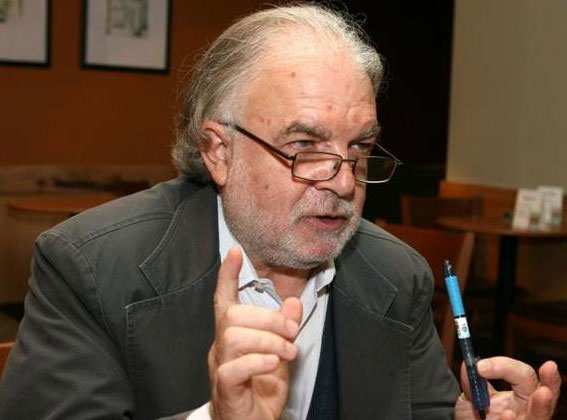By Claude Salhani- Trend:
There is a perpetual disconnect between Westerners, especially in some of the Western media, and the reality of life in some of the post-Soviet states. The disconnect comes in the form of preconceived ideas formulated by some Westerners that life in former Soviet republics of Central Asia resembles something close to life in the gulags. Indeed, these places do still exist, but he truth is that not all "stans" are created equal.
Yes, there are countries in the former Soviet space where life is hard, where the economy is in terrible shape, where unemployment is high, where the secret police believe Joe Stalin still calls the shots from the Kremlin, (or at least they behave as though they believe that) and where the next coup is just around the corner.
Azerbaijan is not one of those.
The trouble with many foreign reporters who make a quick trip to a country they know little about is that more often than not they end up relying on over-used key words and/or phrases that will give their stories an added air of je ne sais quoi, and make them appear as though they are experts in a particular field. Example: using any of the following words believing it will give their story greater credibility: "despot," "regime," or "abusive of human rights," when describing a foreign leader because he may have won the elections by an overwhelming majority for the "nth" time. This is simply incomprehensible in the West. Why would someone vote for the same man, time and time again?
Perhaps this is best explained by a former Italian ambassador to Astana who was selected by the European Union a few years ago to act as a monitor in an election in Kazakhstan. The ambassador told me he was looking forward to the task as it would allow him to get a first hand view of what exactly transpired at these elections.
His first surprise came when he asked a young Kazakh translator who was accompanying him whom she would vote for. Without hesitation, she replied "Nazarbayev, of course." The ambassador was surprised. Why would a young woman, most likely voting for the first time in her life, chose to keep the same face in power, a face that has led the country as leader of the Communist Party and later adapted the country and his politics to move with the flow?
The biggest reason is that Kazakhstan has a stable economy, little or no unemployment, and is overall politically stable. There are no Kazakh immigrants in any of the other Stans, she pointed out; whereas, there are tens of thousands, if not more, immigrants from other Central Asian countries in Kazakhstan. That alone should say something about the state of affairs in the country.
The same can be said of Azerbaijan, who much like Kazakhstan, is one of the successful economic stories in the post-Soviet space. It is important to remember that transition from the authoritarian regime under communism to full-blown democracy is a highly complex process that has required multiple re-adjustments along the way. The people of these former Soviet republics, unlike those of the Baltics and of Eastern Europe do not have a recent history of self-rule or of having had a democratic form of governance.
The move to a full democracy has to be carried out cautiously as the road to full Jeffersonian democracy can easily be fraught with traps. Especially in the South Caucuses as in Azerbaijan where Russia, the giant of the region is less than a three-hour car ride away from the capital Baku, (slightly longer in a T-90 tank).
To the south is Iran, with whom relations are cordial, but given the Islamic Republic's recent history, the Azerbaijanis can't help but look back over their shoulder. Also a couple of hours up the road is Georgia, a country that Russian troops (re)-invaded just a few years ago. And then there is Armenia, with whom Azerbaijan remains in a state of war.
Upsetting the applecart would not require much. With all that in mind Azerbaijan's President Ilham Aliyev has adopted the same approach to this issue as has his colleague in Kazakhstan: Fix the economy first and give the people democracy.
And this strategy has created stability and made both widely popular among their respective populations.
Claude Salhani is senior editor at Trend Agency, in Azerbaijan. You can follow him on Twitter @claudesalhani






